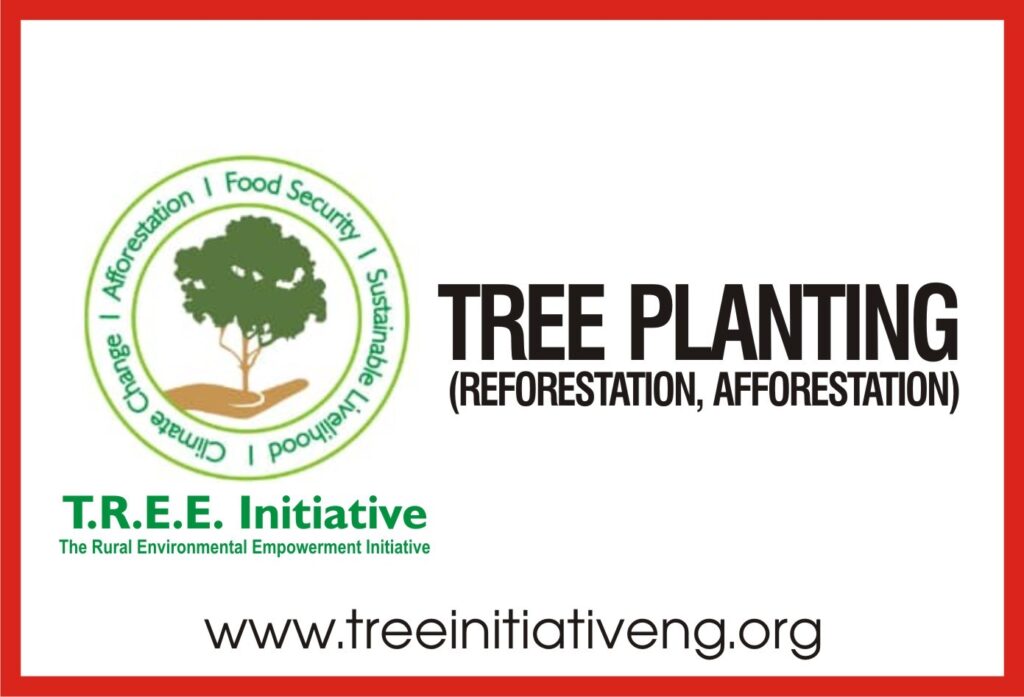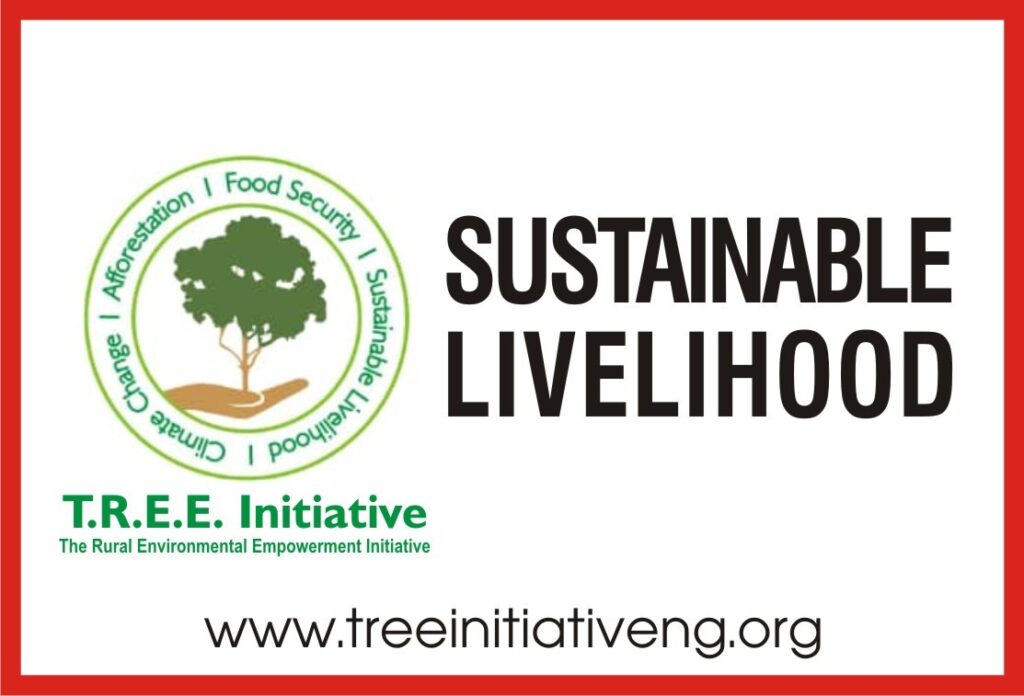
Tree Planting (Reforestation & Agroforestry)
T.R.E.E. Initiative have been able to set up a few self-help, long term afforestation and sustainable forest management programs to create national awareness on the need to mitigate the negative consequences of climate change caused by indiscriminate deforestation.
The primary focus here is to reach out to institutions, communities and smallholder farmer clusters across the country particularly in areas where deforestation has become a major concern as a result of the indiscriminate felling of trees and depletion of forest resources due to the booming business of charcoal production for domestic use, industrial use and for export.
We are currently working on a few programs, projects and collaborations to reach our goal of planting and nurturing 10 million trees by 2030.:
Climate Change Education
T.R.E.E. Initiative’s key area of interest is in the scaling of the advocacy for Climate Action using hybrid Climate Change Education platforms and collaborations with partners. Our approach at T.R.E.E. Initiative is beyond rhetoric. We are resolute in our commitment to practical strategies that will push further and farther the Climate Change Education movement.
T.R.E.E. Initiative have worked assiduously in this area over the past few years engaging institutions and partners including State Actors on the need to scale climate change education within and outside classrooms in Nigeria.


Food Security & Agriculture
T.R.E.E. Initiative has established an advocacy platform that engages communities and collaborates with key stakeholders to pragmatically address national food security in Nigeria. Food security is defined as ensuring that all people have consistent physical and economic access to sufficient, safe, and nutritious food for a healthy life.
Recognizing the sensitivity of food production to climate change, we understand that variations in rainfall patter, temperature, flooding, and deforestation can significantly impact crop yields and livestock production. These changes ultimately lead to increased food prices, particularly affecting vulnerable populations in rural areas who rely on agricultural income for their access to food.
T.R.E.E. Initiative is committed to capacity building, fostering productive partnerships, and promoting nature-based solutions within the agriculture sector to achieve sustainable national food security.
Sustainable Livelihood
The focus and involvement in rural livelihood by T.R.E.E. Initiative is based on available statistics that a sizeable fraction of global population is resident in rural areas. The large number of rural people and their involvement in peasant agriculture and other activities makes planning for rural people, peasants, and their livelihoods important for many reasons.
Indirectly, forests support the natural environment that nourishes agriculture and the food supplies of nearly half the population of the developing world. In addition to contributing to food security, forest resources also provides commercial opportunities and employment.
Our sustainable livelihood activities focus on small scale economic activities related to agriculture, livestock, fisheries, bee-keeping and forest resources among others
